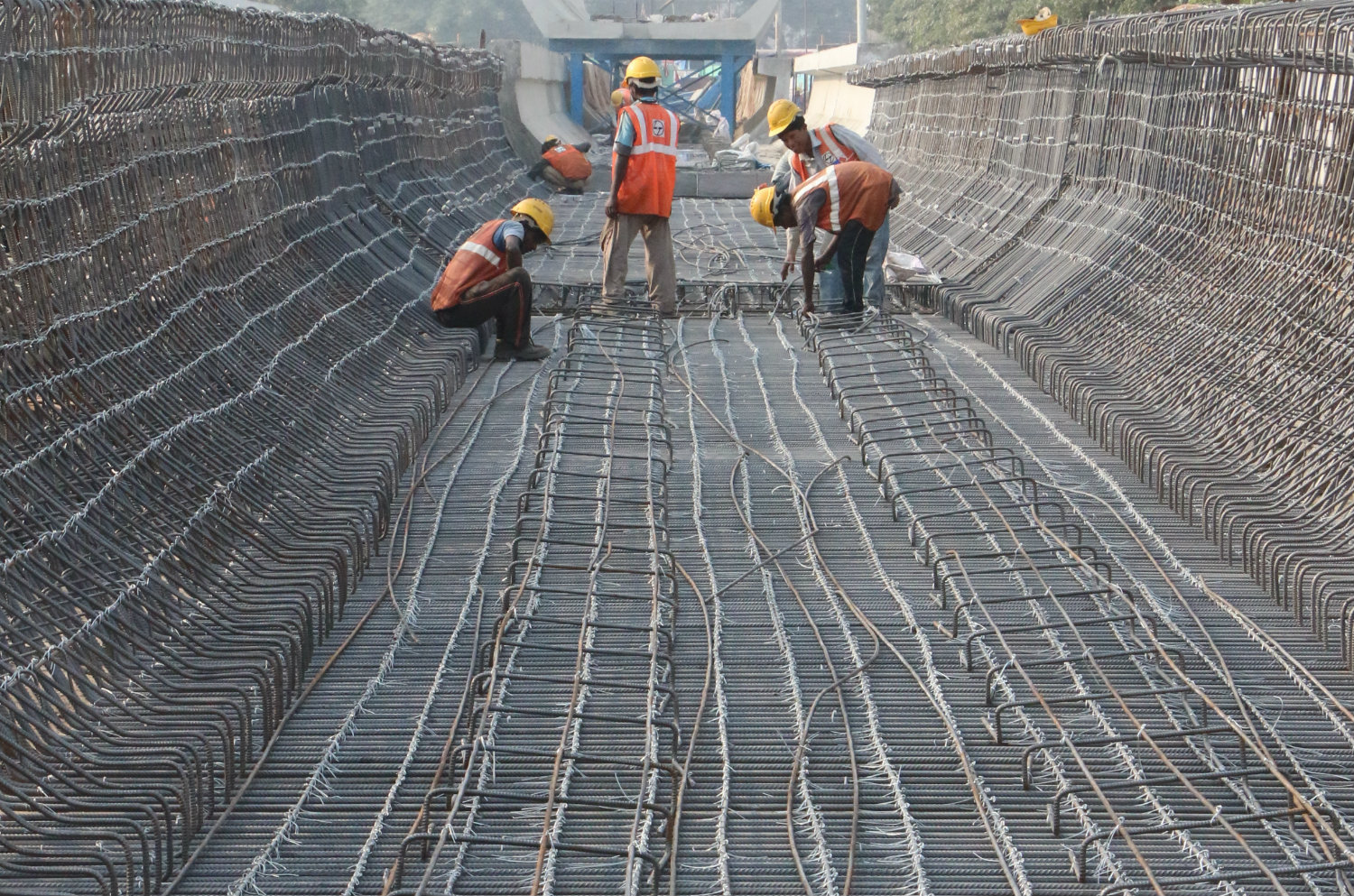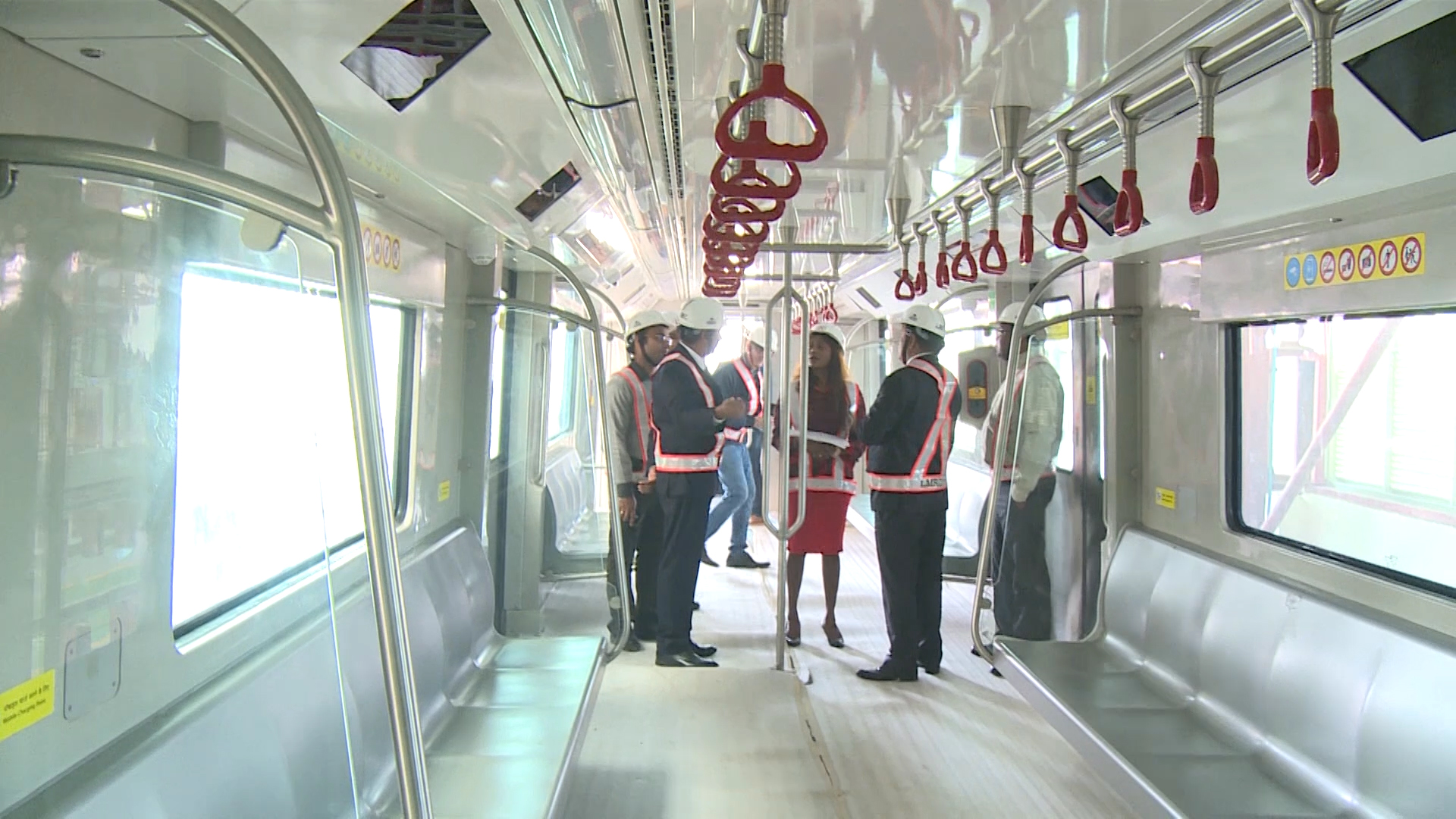The new Lucknow Metro will change the way millions of people move—and breathe—in one of the most populated Indian cities
“The metro will make a big difference for many people, particularly poor people. It will help us save money, fuel and a lot of time.” Jai Krishan Pandey is a young electronics student at Lucknow Polytechnic and one of three million people who live in Lucknow, the capital of Uttar Pradesh. India’s most populous state is home to more than 200 million people. If it were a country, it would be the fifth biggest in the world by population.
Like most inhabitants of Lucknow, Jai Krishan spends a lot of time in traffic. Once the metro is constructed, Jai will have a station right in front of his faculty. That means a faster commute—and a cleaner one. Lucknow will then be one of eight Indian cities to boast a metro system.
Sustainable urban development in the making
“One of the challenges here in India is the scale of urbanisation,” says Dónal Cannon, who has just arrived at the Indian capital, New Delhi, to head the European Investment Bank’s South Asia office. Dónal is one of the one million people who are expected to move to New Delhi this year.
“Rapid urbanisation brings its own demands, notably around water, sanitation and, in particular, transport,” he explains. “Without addressing mass transport requirements, sustainable urban development would simply not be possible.”

- The construction of the Lucknow Metro
That’s precisely what the new Lucknow Metro aims to achieve. The new infrastructure is expected to increase the share of public transport within the city from the current 10% to 27% by 2030. A EUR 450 m loan from the EIB, our largest ever investment in India, is financing the construction of the first 23km of the metro system, and purchase of around 80 metro cars to operate on the network.
Around 64% of the air pollution in Lucknow comes from traffic. For Piers Vickers, the EIB engineer behind the project, the metro will have “a profound impact on the way people in Lucknow move, as the city doesn’t currently have a well-developed public transport system. There are some scheduled bus services, but most travel in the city is by unscheduled three-wheeler services – so called ‘tempos’ and ‘tuk-tuks’ – motorcycles, bicycles and walking. We hope that there will be enormous short-term benefits. Due to the decongestion effect, the air quality in the city should improve.”
The metro line will run from the airport in the south of the city, through dense residential areas, the city centre and to the north, serving 22 stations along the route. It will operate trains every four minutes with a capacity of 1 100 passengers per train.
“An energy efficient, comfortable and safe mode of transport was very necessary,” says Kumar Keshav, chairman of Lucknow Metro. “My feeling is that the metro will change the way people behave, not only the way of travel alone. Using their own means of transport, people are irritated because of the congestion, accidents… so many problems are there! With these fully equipped air-conditioned trains, people will save time and will be more relaxed,” he explains.

- Inside the metro: each train will be able to transport 1 100 passengers
Why does Europe care?
So why does the EU bank invest in projects like this, thousands of kilometres away from Europe? “Pollution is a global problem,” says EIB Vice-President Andrew McDowell. “Treating pollution in Europe alone is never going to solve the issue. Reducing emissions around the world is crucial to tackle climate change, one of the key objectives we have at the EU bank.”
Lucknow Metro is a flagship project of the EIB’s commitment to climate action also outside the EU borders where we have committed to increase our climate financing to 35% of our total lending by 2020. Over the next four years we will provide around EUR 100bn for climate-related projects all over the world.
In images: Lucknow Metro, the future is now
Explore with Sunita Lukkhoo, EIB loan officer for the Lucknow Metro project, how this new infrastructure will change the way Lucknow citizens move and live. "The Lucknow Metro project is emblematic of the growing collaboration between the European Union and India on issues that have global impact. As an EIB employee, I am proud of the role the bank plays in enhancing this partnership," Sunita explains.
